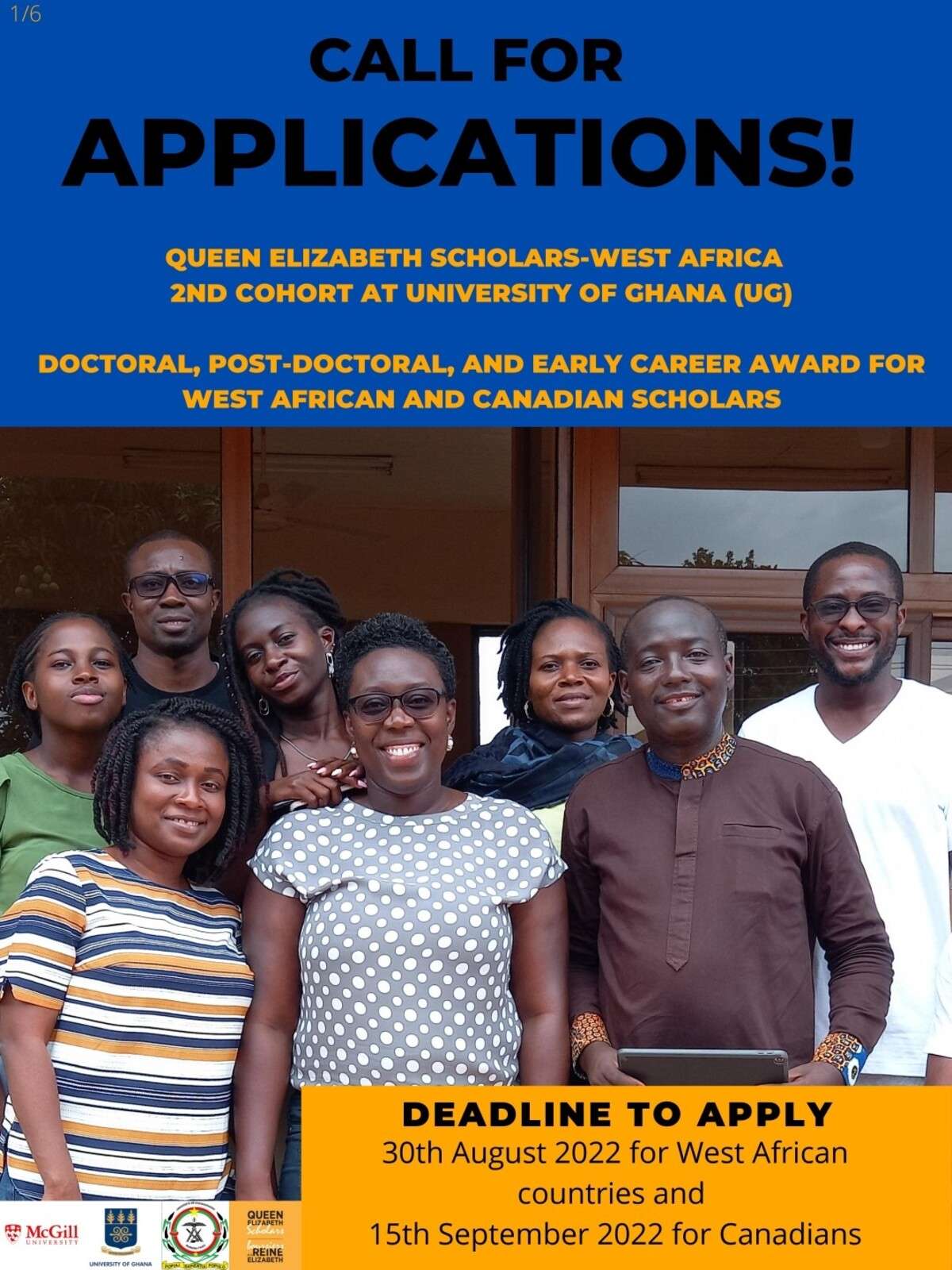Table of Contents
About the Queen Elizabeth Scholars West Africa (QES-WA) Program
The Queen Elizabeth Scholars (QES) program has funded Netlinks, a McGill University-University of Ghana-Universite Joseph ki-ZERBO to strengthen the capacity of researchers who work with farmers, entrepreneurs, community leaders, and local institutions to develop solutions to agriculture and food and nutrition security. We seek to improve especially the lives of adolescent girls and women farmers in rural Ghana through expanding knowledge and skills, and improving access to services and markets.
Cross-cutting research issues will include but not be limited to
- (i) the quality of production of small-scale women farmers working in the area of high-value animal products and other agricultural commodities,
- (ii) farmers’ association(s) and cooperatives to support women farmers and facilitate access to agriculture and financial services and development of small businesses,
- (iii) adolescent girls’ and young women’s knowledge and skills needed to become successful agriculture-related entrepreneurs; and
- (iv) institutional collaborations to provide services and support for adolescent girls and women’s nutrition, development, and income generation potential.
Benefits
All international and in-country travel, accommodations, and meals will be paid directly by the program. Personal expenses related to vaccines, Covid-19 tests, and airport transfers will also be reimbursed.
Requirements
Three types of applicants are being recruited:
- Doctoral researcher: an individual conducting research at the Ph.D. level.
- Post-doctoral fellow: an individual who is conducting research after the completion of their doctoral studies.
- Early career researcher: an individual who has completed independent research for 4-7 years or is in a tenure-track position at a degree-granting institution. An equivalent to a tenure-track position in Ghana is a Lecturer or Research Fellow who has previously done a post-doc.
- Doctoral researchers and Post-doctoral fellows must be either Canadian or citizens of eligible Sub-Saharan LMIC
- All early career researchers must be citizens of eligible Sub-Saharan LMIC
Application Deadline: August 30, 2022
For how to apply and other details check the sponsoring organization’s website <<Here>>
